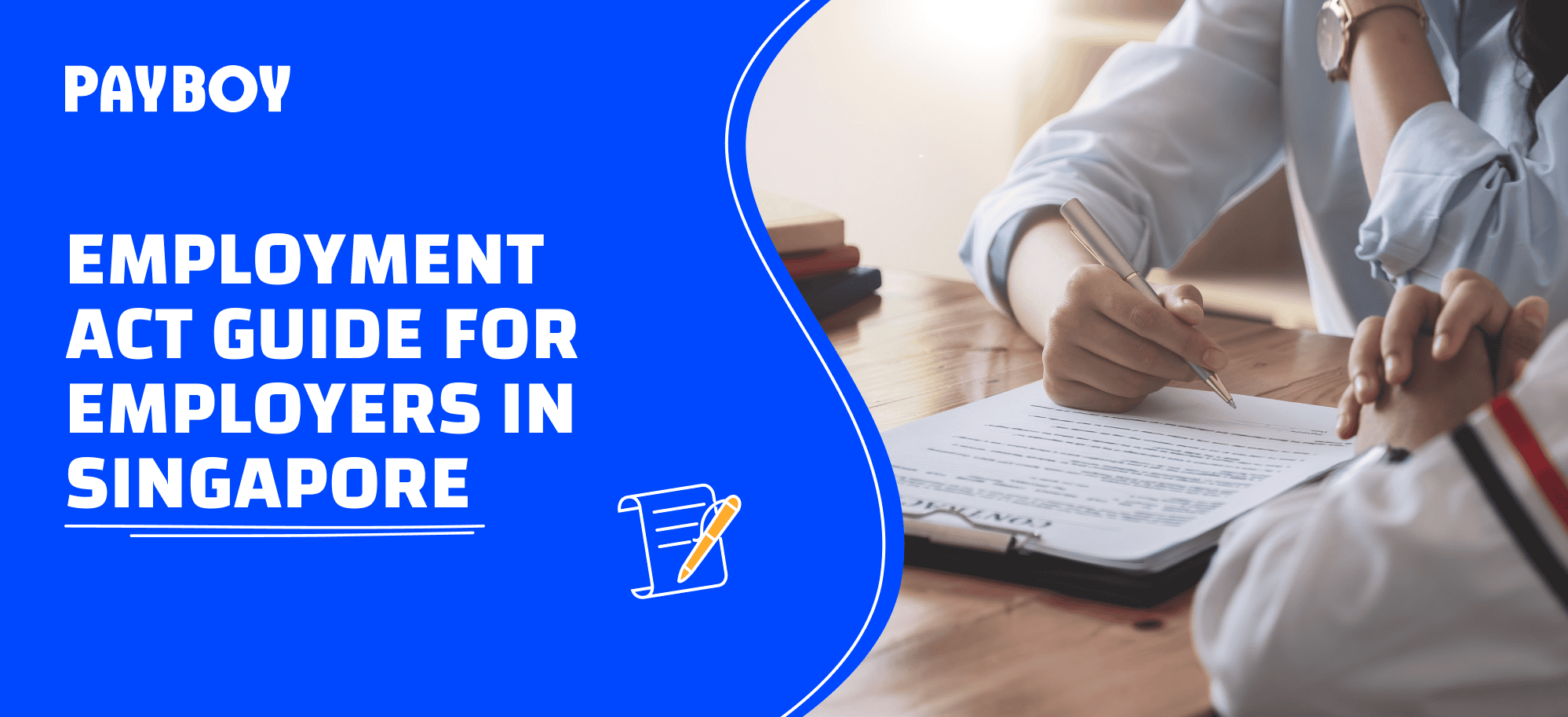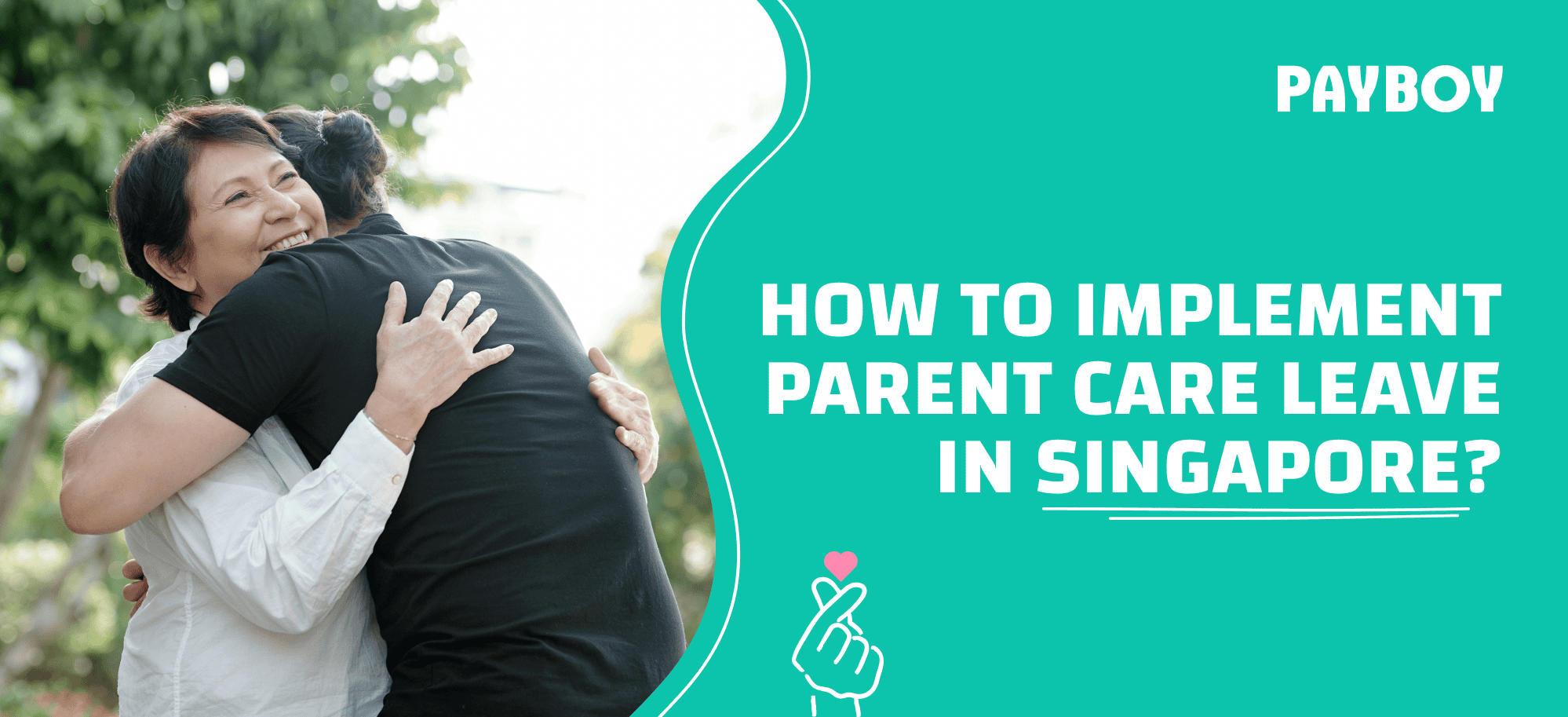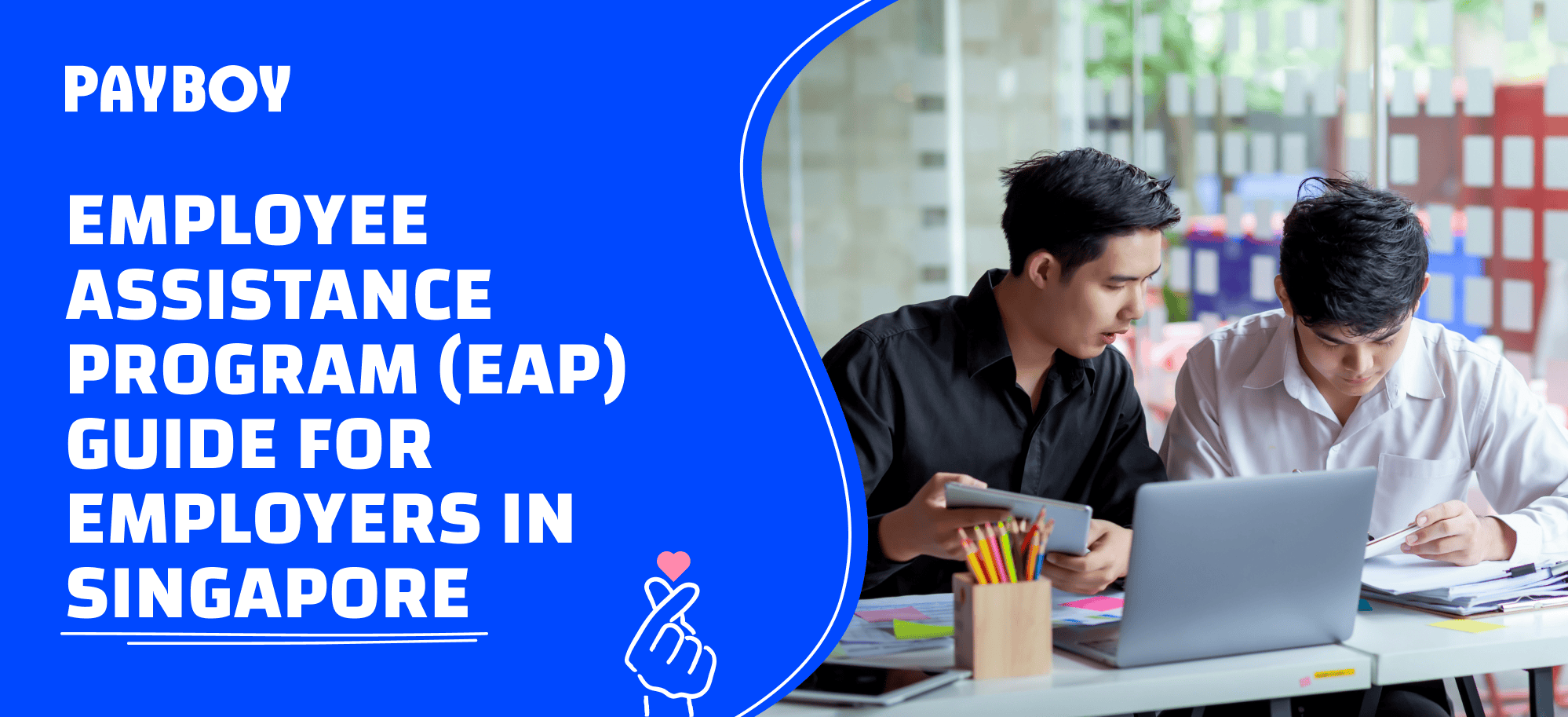Understanding the employment landscape in Singapore requires a thorough understanding of the Employment Act, which is the primary legislation governing employment practices in the country. This guide aims to provide employers with a comprehensive overview of the Employment Act, covering essential areas such as employee coverage, key employment terms, wages, statutory contributions, working hours, statutory leaves, termination, and workplace safety. By understanding these aspects, employers can ensure compliance with the law and foster a fair and conducive working environment for their employees.
What is the Employment Act?
The Employment Act is Singapore's main labour law that sets out the basic terms and conditions of employment, including provisions for salary, working hours, overtime, and other employment-related matters. It is designed to protect both employers and employees, ensuring that the fundamental rights of workers are upheld while providing clear guidelines for employers to follow.
The Act applies to all employees (including foreign employees) working under a contract of service with an employer, with specific exceptions such as seafarers, domestic workers, and statutory board employees or civil servants. Its comprehensive coverage ensures that a significant portion of the workforce is protected under this legislation, promoting fair and equitable employment practices across various sectors.
Who is covered by the Employment Act?
The Employment Act covers local and foreign employees working in Singapore under a contract of service.
An employee is employed in the following terms:
- Full-time
- Part-time
- Temporary
- Contract
An employee is paid on the following basis:
- Hourly
- Daily
- Monthly
- Piece-rated
However, there are specific categories of workers who are not covered by the Employment Act, they are:
- Seafarer
- Domestic worker
- Statutory board employee or civil servant
As they are not covered by the Employment Act, their terms and conditions of employment will be based on the employment contract.
Who is covered under Part IV of the Employment Act?
Part IV of the Employment Act, which provides for rest days, hours of work, and other conditions of service, only applies to:
- A workman (doing manual labour) earning a monthly basic salary of $4,500 or less.
- An employee who is not a workman but who is covered by the Employment Act and earns a monthly basic salary of $2,600 or less.
Part IV of the Act does not cover all managers or executives.
What are some key areas that are covered by the Employment Act?
The Employment Act addresses several key areas crucial for maintaining fair employment practices. These include:
Key Employment Terms (KET)
Employers must provide employees with written Key Employment Terms (KET) to ensure clarity and transparency. KET serves as the foundation for the employment agreement and provides clarity to both parties, helping to avoid potential disputes down the road. This includes details like job title, salary, working hours, and other essential employment conditions.
For an in-depth guide on KET, check out our ”Key Employment Terms (KET) guide”.
Salary
The Employment Act stipulates the minimum requirements for salary payments, such as the salary must be paid at least once a month within 7 days after the end of the salary period. Employers must adhere to these regulations to ensure fair compensation practices.
For more information on salaries, dive deep into our ”Net salary guide for employers in Singapore”.
Itemised payslips
Since April 2016, the Ministry of Manpower (MOM) in Singapore has enforced a mandatory requirement for all employers to furnish itemised payslips to their employees. An itemised payslip is a statement that explains what your employee’s pay is made up of. These payslips must include a set of 12 specific items, as outlined above by MOM.
For further details on the 12 specific items made by MOM, learn more in our “Itemised Payslips guide”.
Statutory contributions
CPF Contribution
Employers are required to make Central Provident Fund (CPF) contributions for their Singaporean and Permanent Resident employees. This statutory contribution is essential for employees' retirement, healthcare, and housing needs. The CPF system operates through mandatory contributions from both employees and employers. The contribution rate depends on certain factors, such as employee age.
Employers are required to submit and pay the CPF contributions by the 14th of the following month (or the next working day if the 14th falls on a Saturday, Sunday, or public holiday).
Learn more about CPF contributions with our ”CPF guide for employers”.
Self-help Groups
Contributions to self-help groups are mandatory for employees who belong to specific ethnic groups. These contributions support community initiatives and welfare programmes. Some of the well-known Self-Help Groups in Singapore include:
Learn how to navigate the process of deducting SHG contributions from your employees' wages with our comprehensive ”Self-Help Groups (SHG) contribution guide”.
Skill Development Levy
The SDL is a compulsory levy that employers must pay for every employee, which funds training and skills development initiatives. The funds collected via SDL flow into the Skills Development Fund (SDF), a key player in Singapore's workforce development.
For further details, explore our ”Skill Development Levy (SDL) guide”.
Hours of work and overtime
The Employment Act sets out the standard working hours and overtime regulations to ensure employees are not overworked and are compensated fairly for extra hours. Employees covered under the Employment Act Part IV have contractual working hours that cannot exceed 8 hours per day or 44 hours per week (spread across 5 days from Monday to Friday). The maximum overtime limit is 72 hours per month. However, work on rest days or public holidays doesn't count towards the 72-hour limit. Overtime pay, if applicable, must be paid within 14 days of the stipulated salary period.
Employers must adhere to these guidelines to promote work-life balance. For more details, head over to ”Singapore working hours guide” and ”Overtime pay guide”.
Rest day
A rest day is mandated by the Minister of Manpower (MOM) and it must be a full 24-hour period, preferably consecutive with the other working days, and it is not compensated. For shift workers, the rest day can last for a continuous period of 30 hours. This 30-hour rest period that begins before 6 p.m. on a Sunday counts as one rest day for the week, even if it extends into Monday of the following week. This provision ensures that employees have sufficient time to rest and recuperate.
More details on rest day-related questions can be found in our ”Rest day guide for employers”.
Public holiday
In Singapore, the Employment Act mandates that employees are entitled to enjoy 11 paid public holidays annually. It also places a responsibility on employers, especially to provide compensation for work performed on public holidays, either an additional day's remuneration or a compensatory day off.
Discover our comprehensive ”Public holiday pay guide” to help you gain more clarity and confidence in managing public holidays.
Tip: You can easily add the public holiday calendar based on countries on Payboy to manage leaves seamlessly!
Statutory leaves
Understanding statutory leave entitlements is essential for both employers and employees to ensure compliance with Singapore's employment laws and to support the well-being of the workforce. Here is a summary of the various statutory leaves provided under the Employment Act in Singapore:
- Annual leave:
- Employees are entitled to a minimum of 7 days of paid annual leave for the first year of service.
- The entitlement increases by one day for each additional year of service, up to a maximum of 14 days.
- Sick leave:
- Employees are entitled to paid outpatient sick leave and hospitalisation leave.
- The entitlement for outpatient sick leave is 14 days per year.
- For hospitalisation leave, employees are entitled to 60 days per year, which includes the 14 days of outpatient sick leave.
- Maternity leave:
- Female employees are entitled to 16 weeks of paid maternity leave if the child is a Singapore citizen and the employee has served the employer for at least 3 months before the birth.
- For non-citizen children or if the employee has less than 3 months of service, 12 weeks of maternity leave is granted, with the first 8 weeks paid.
- Paternity leave:
- Fathers are entitled to 2 weeks of paid paternity leave if the child is a Singapore citizen and the father has served the employer for at least 3 months before the birth.
- Shared parental leave:
- Fathers can share up to 4 weeks of the 16 weeks of maternity leave, subject to mutual agreement with the mother.
- Adoption leave:
- Female employees who adopt a child under 12 months old are entitled to 12 weeks of paid adoption leave if the child is a Singapore citizen and the employee has served the employer for at least 3 months before the formal intent to adopt.
- Childcare leave:
- Parents of Singapore citizen children under 7 years old are entitled to 6 days of paid childcare leave per year.
- For children between 7 and 12 years old, parents are entitled to 2 days of paid extended childcare leave per year.
- Unpaid infant care leave:
- Parents of Singapore citizen children under 2 years old are entitled to 6 days of unpaid infant care leave per year.
Tip: Learn how to simplify employee leave tracking with Payboy’s leave management system!
Notice period
A notice period is a period of time in which the employer and/or employee are given formal notice of the termination of an employment contract. It is important that the termination intention be fair and compliant with that of the other party.
Find out more about the notice period requirements in our "Notice period: A guide for employers in Singapore".
What are some non-statutory benefits and perks that are not covered under the Employment Act?
While the Employment Act covers the statutory requirements, many employers in Singapore go beyond these minimum standards to offer additional benefits and perks. These can include:
- Health and wellness programmes: offering comprehensive health insurance, wellness programmes, and regular health screenings.
- Flexible Working Arrangements: providing options for remote work, flexible hours, or compressed workweeks to support work-life balance.
- Professional development: investing in employees' growth through training programmes, workshops, and education subsidies.
- Employee recognition: implementing schemes to recognise and reward outstanding performance, such as employee of the month awards or performance bonuses.
- Work-life balance initiatives: offering additional leave options, childcare support, or recreational facilities.
These non-statutory benefits can significantly enhance employee satisfaction and retention. To remain competitive, by implementing a flexible benefits programme, employers can create a more engaging and supportive work environment. For more detailed guidance on flexible benefits, you can refer to our "Flexible benefits guide".
Ensure Compliance with the Employment Act with Payboy HR & Payroll Software
Compliance with the Employment Act is crucial for businesses operating in Singapore. Non-compliance can result in penalties, legal issues, and damage to your company's reputation. Utilising HR and payroll software, like Payboy, can significantly streamline the process and ensure your business adheres to all legal requirements. Here’s how:
- Automated Calculations and Updates: HR and payroll software automatically updates to reflect the latest changes in employment laws and regulations. This ensures that your payroll calculations, such as overtime, leave entitlements, and CPF contributions, are always accurate and compliant with the current legal standards.
- Accurate Record-Keeping: The software maintains detailed records of employee hours, leave, benefits, and pay. These records are essential for compliance with the Employment Act, as they provide verifiable proof that your business adheres to statutory requirements regarding working hours, rest days, and leave entitlements.
- Streamlined Processes: Automating HR and payroll processes reduces the risk of human error, which can lead to non-compliance. The software ensures that all employee data is processed correctly, from onboarding to offboarding, making it easier to manage and track compliance-related activities.
- Timely and Correct Payments: Ensuring employees are paid correctly and on time is a fundamental aspect of compliance. HR and payroll software calculates salaries, deductions, and bonuses accurately, ensuring that employees receive the correct and timely amounts.
- Compliance Reports: HR and payroll software can generate compliance reports that summarise key data points required for legal audits. These reports can be easily accessed and provided during inspections or audits, demonstrating your company's adherence to employment laws.
- Leave Management: Payboy’s leave management system helps manage various types of leave, including annual leave, sick leave, and maternity leave, ensuring compliance with the Employment Act. It automatically tracks leave balances and entitlements, reducing the administrative burden and ensuring that employees receive their legal leave entitlements.
- Employee Self-Service Portals: Employee self-service portals allow employees to access their payslips, leave balances, and personal information. This transparency helps employees understand their rights and entitlements under the Employment Act, fostering trust and ensuring that both parties are aware of their obligations.
By integrating an HR and payroll software like Payboy, businesses can efficiently manage their HR processes while ensuring full compliance with the Employment Act. This not only mitigates the risk of legal issues but also promotes a fair and transparent working environment.
Streamline your HR processes with Payboy today!
As a PSG-approved HRMS, Payboy provides a robust system to help you manage your HR tasks so that you can focus on your business and people!
With our wide range of modules, you can customise a solution to meet the specific needs of your business:
Payroll Processing | Leave Management | Claims Management | Applicant Tracking
Time Attendance | Shift Scheduling | Appraisal System | Inventory ManagementProject Costing | Training Management






















